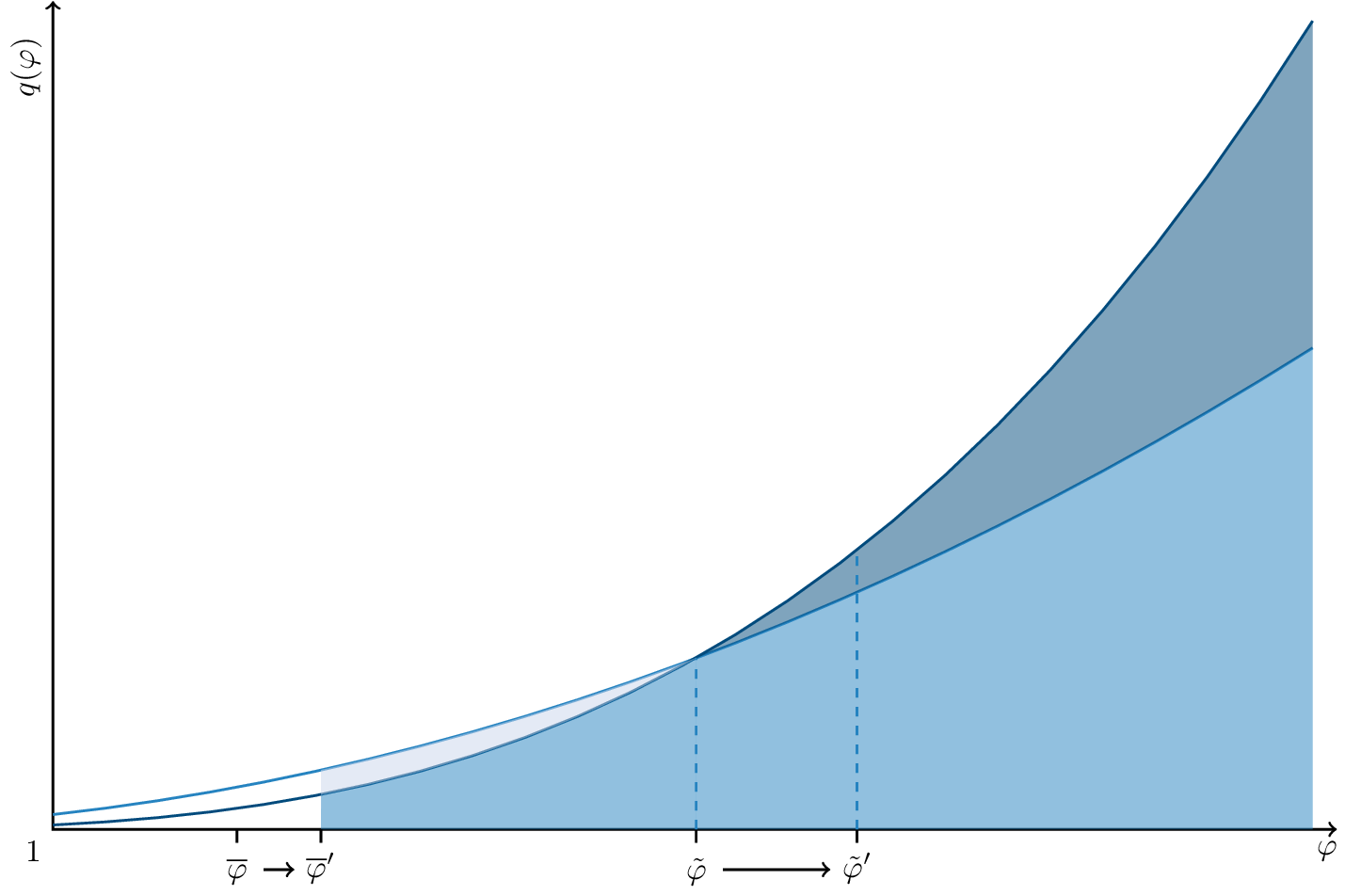Research
Competition, Tasks and Earnings Inequality
Since 2000 developed countries like the US have seen a polarization of earnings. This paper explores a novel mechanism that can explain the recent trends in earnings inequality. I build a tractable general equilibrium model which differentiates between three different types of tasks: manual, routine and cognitive. Workers are heterogeneous in skill and self select into the type of task they perform. Those performing cognitive tasks take a managerial job and are susceptible to a superstar phenomenon. I use this model to look at the effects on labour composition and the earnings structure of an increase in competition between varieties, brought about by participating in a more globalized economy. I find that this increases income inequality, especially for top earners, due to a superstar effect. At the same time, there is a trickle down effect, increasing the number of manual jobs and reducing those of cognitive tasks, which then produces a polarization of earnings.

